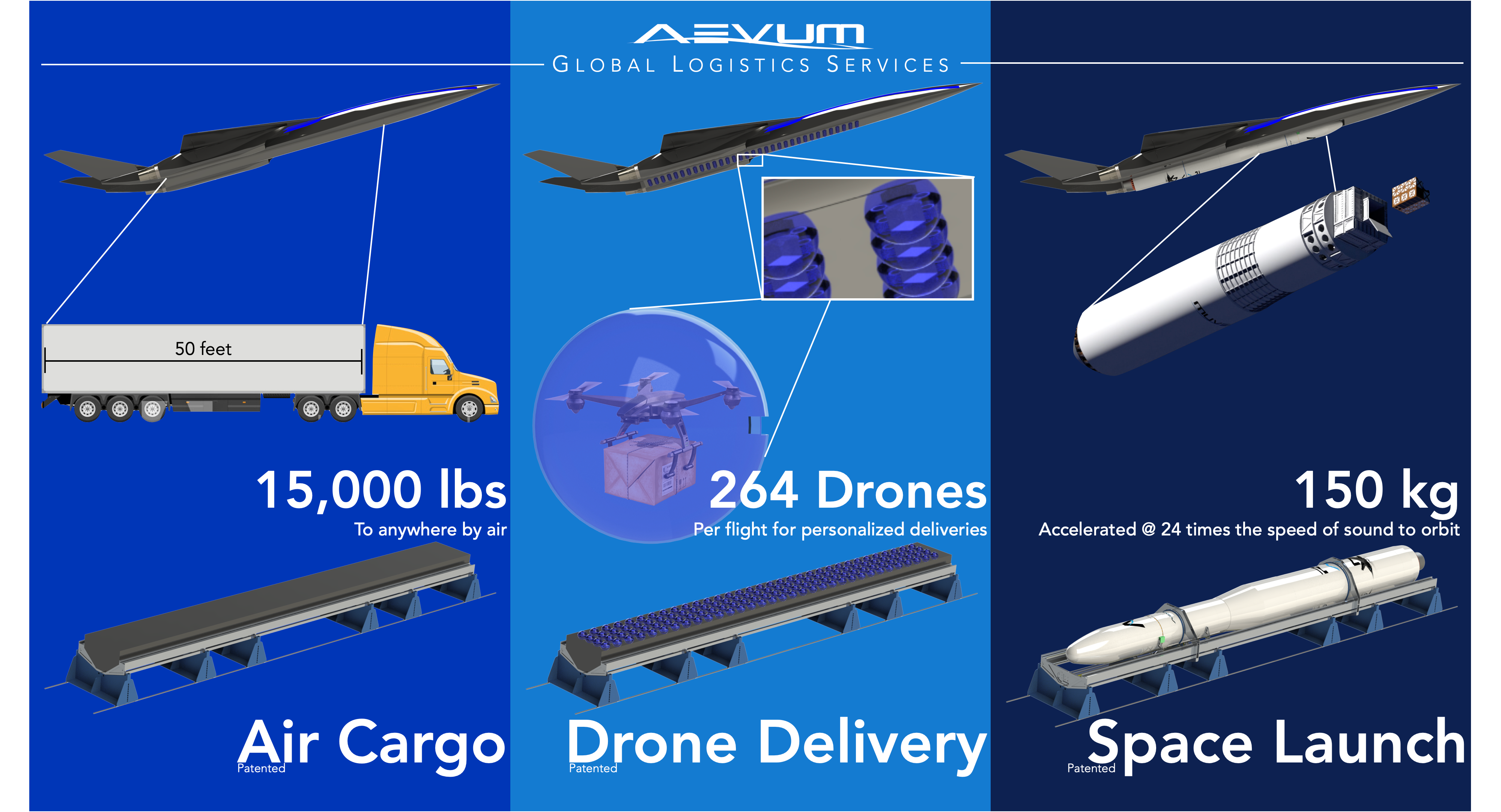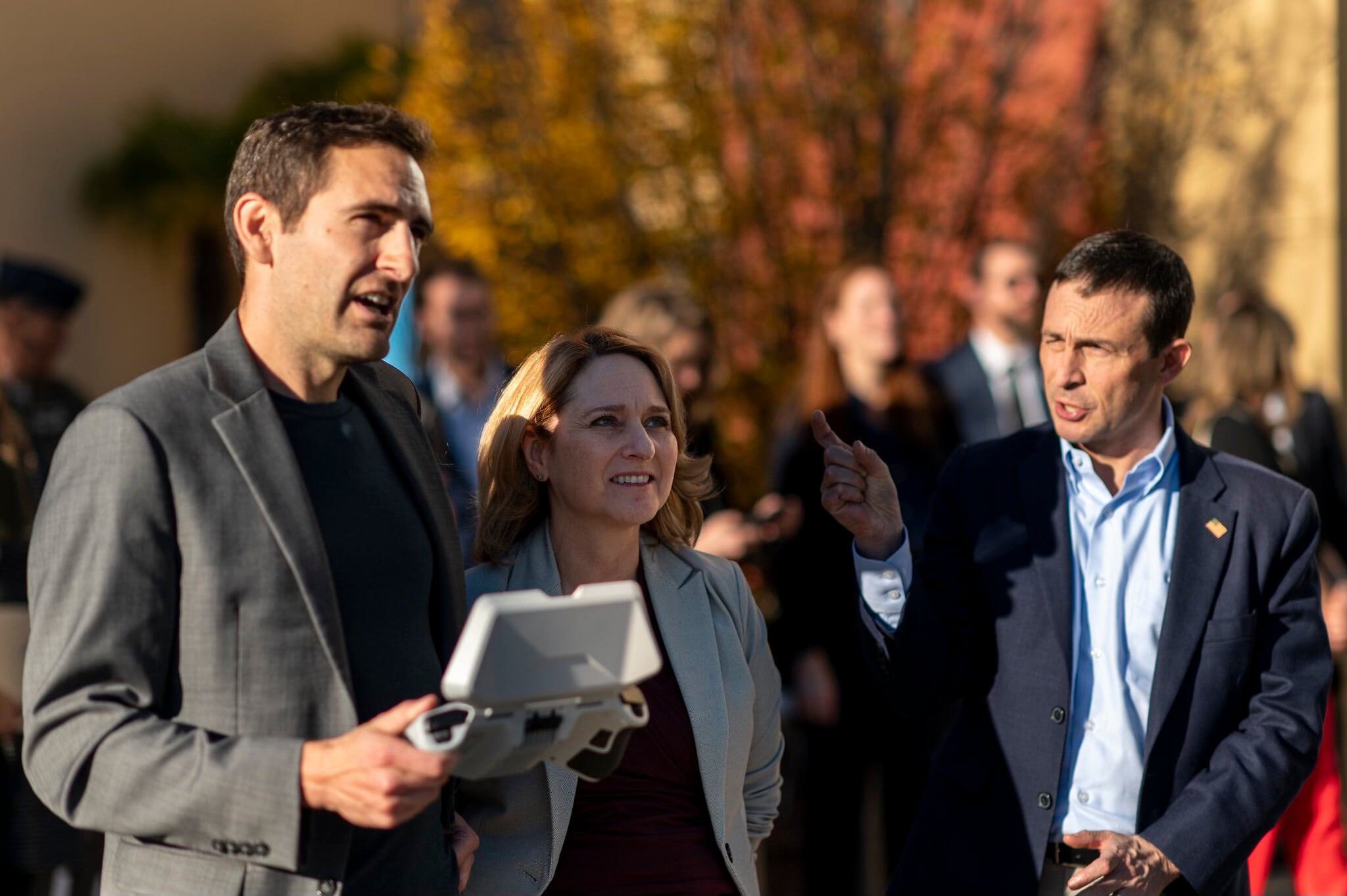WASHINGTON — A large unmanned aircraft from Aevum that can launch small rockets while flying will also be able to deliver cargo and host intelligence, surveillance and reconnaissance payloads, the company said.
Founded in 2016, the company only recently came out of stealth mode to reveal its designs for the Ravn X drone, an 80-foot aircraft that can launch small payloads into low Earth orbit from midair. Aevum labels Ravn X as the largest drone in the world by mass, with a gross takeoff weight of 55,000 pounds. But the company said it has secured a new patent that will allow it to rapidly reconfigure its drone for multiple missions, including autonomously delivering cargo or carrying sensor payloads.
“Really, the services that Aevum provides is logistics. So we move stuff. It can be both physical cargo or it can be data,” explained CEO and Founder Jay Skylus.

This multipurpose drone could be a drastic change from single-use or single-mission drones that the military has typically invested in. Skylus compared Ravn X to an RQ-4 Global Hawk, used for ISR missions. While a Global Hawk can swap out payloads, those payloads are different types of sensors to help it complete its ISR tasks. Ravn X will be able to carry sensor payloads, but it can also be rapidly reconfigured for other missions, including delivering cargo to a forward operating base. The ability for the drone to land on a 1-mile runway — or even flat farmland — expands the possibilities for cargo delivery to hard-to-reach places.
Continuing the comparison, Skylus noted that Ravn X can carry 15,000 pounds of payload. A Global Hawk can carry 3,000 pounds. Aevum doesn’t expect Ravn X to replace the dedicated mission drones the U.S. currently relies on, but to provide a new modular option that can overcome several logistics challenges.
While Skylus couldn’t speak to what contracts the company would compete for from the Department of Defense with these new missions, Aevum has already secured multiple contracts to provide launch services for the military.
Ravn X’s first mission will be the Space Force’s ASLON-45 mission, a $5 million contract to test the company’s ability to launch a payload in 24 hours or less. Aevum was one of eight companies to win a $986 million indefinite delivery, indefinite quantity contract for Orbital Services Program-4, a DoD effort to use the commercial launch market to put small payloads on orbit. The company noted last year that it had also secured a Phase II Small Business Innovation Research award and a classified contract.
Still, the company doesn’t plan to rely solely on defense launch contracts. Skylus said that the company is primarily commercial, with just 15 percent of revenues coming from defense contracts, and the plan is to continue to move in that direction. In fact, Skylus said commercial cargo delivery would likely be a much larger profit driver for Aevum.
“Small launch generated, like, less than a billion dollars last year. On the other hand, air cargo generated $270 billion,” said Skylus. “It’s just totally different.”
Ultimately, Aevum wants small launch to simply be one additional feature of the broad logistics services it can provide via Ravn X.
Nathan Strout covers space, unmanned and intelligence systems for C4ISRNET.







